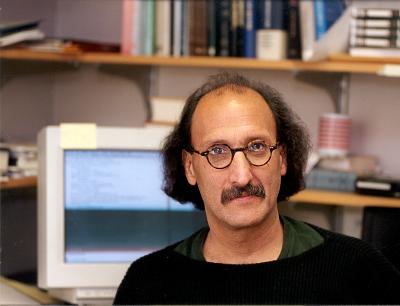November 6, 2003
Mark Groudine named to Institute of Medicine
Dr. Mark Groudine, deputy director of Fred Hutchinson Cancer Research Center, head of the center’s Basic Sciences Division, and UW professor of radiation oncology, has been elected to membership in the Institute of Medicine, a unit of the National Academy of Sciences. He is among 65 new U.S. members and five foreign associates elected this year.
Groudine, who received his medical and doctoral degrees from the University of Pennsylvania, began conducting research at Fred Hutchinson more than 25 years ago while he was completing his clinical training at the UW School of Medicine.
As director of Fred Hutchinson’s Basic Sciences Division, he heads extensive, diverse programs of research in cellular and molecular biology. In addition to his leadership talents in creating an atmosphere where other scientists can flourish, Groudine is internationally noted for his own research contributions on the control of gene expression and the structure of chromatin, the substance in the nucleus of living cells that forms chromosomes and contains genes.
His research team discovered mechanisms that orchestrate the structure of certain chromosomal regions and thereby either activate or silence large sets of genes. Groudine’s most recent studies focus on the relationship between gene activity and the organization of the cell nucleus. For example, his laboratory has shown that certain DNA elements and associated protein complexes establish gene activity by keeping genes away from nuclear compartments that silence gene expression.
Also recognized as an expert in canceer treatment, he has served on the Board of Scientific Counselors for the Division of Cancer Treatment of the National Cancer Institute.
He is a member of the National Academy of Sciences, a fellow of the American Association for the Advancement of Science and a recipient of the Allison Eberlein Fund Award, which recognizes major contributions in the field of hematology/oncology.
New Institute of Medicine members are elected by the current membership on the basis of professional achievement and demonstrated interest, concern and involvement with problems and critical issues that affect public health.
Members contribute their knowledge and professional judgment to the development of findings and the formulation of recommendations, most of which relate to public policy.
The organization was established in 1970 as a unit of the National Academy of Sciences.

